Tools Required
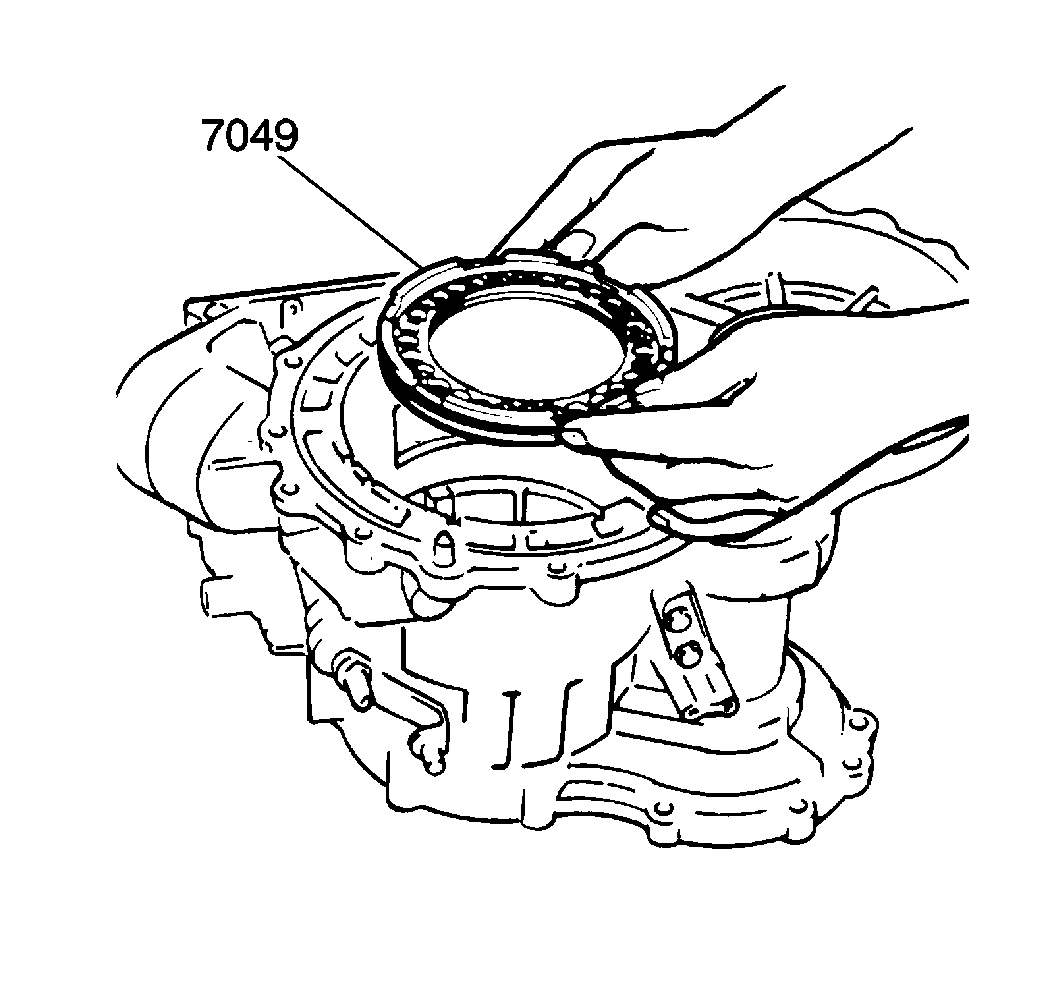
- Inspect the first-reverse brake piston (7049)
for the following conditions:
- Install the inner and outer piston seals onto the piston (7049).
Lubricate the inner and outer piston seals with J 36850
.
- Install the piston (7049) into the transaxle case.
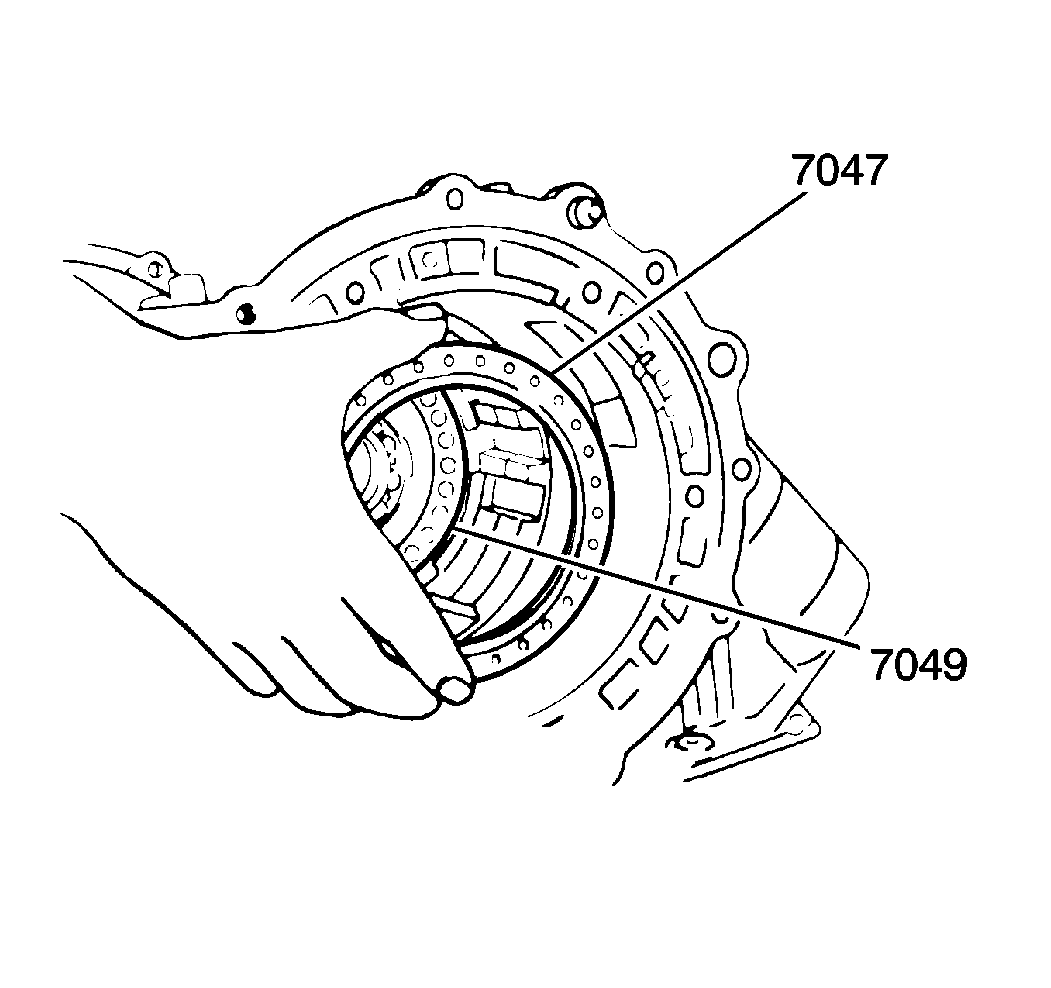
- Install the first-reverse brake return spring
assembly (7047) onto the first-reverse brake piston (7049), with the spring
side of the assembly facing toward the piston.
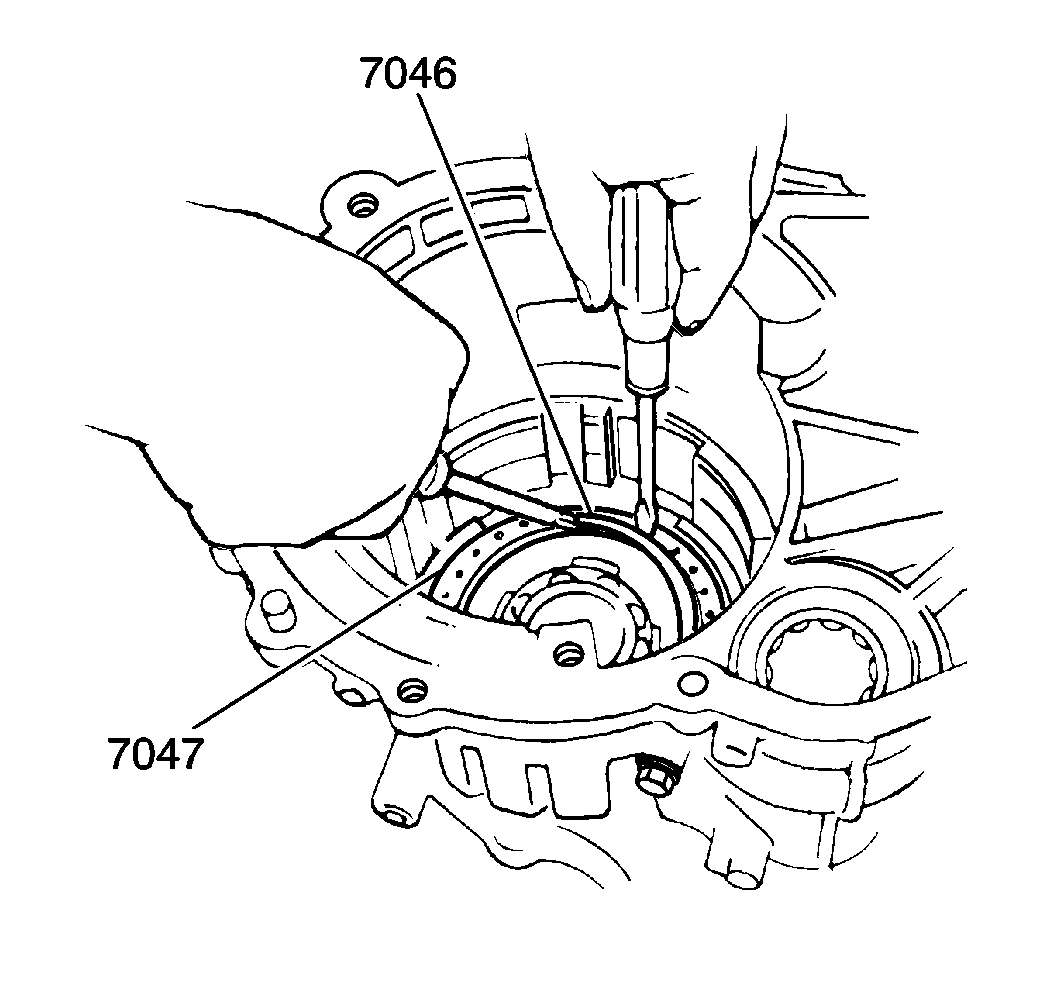
- Install a J 23327
over the spring assembly.
- Compress the spring assembly past the ring groove in the case
hub. Do not compress the return spring assembly (7047) more than is necessary
in order to fit the return spring snap ring (7046) into place.
- Install the return spring assembly snap ring (7046) into the case
hub ring groove.
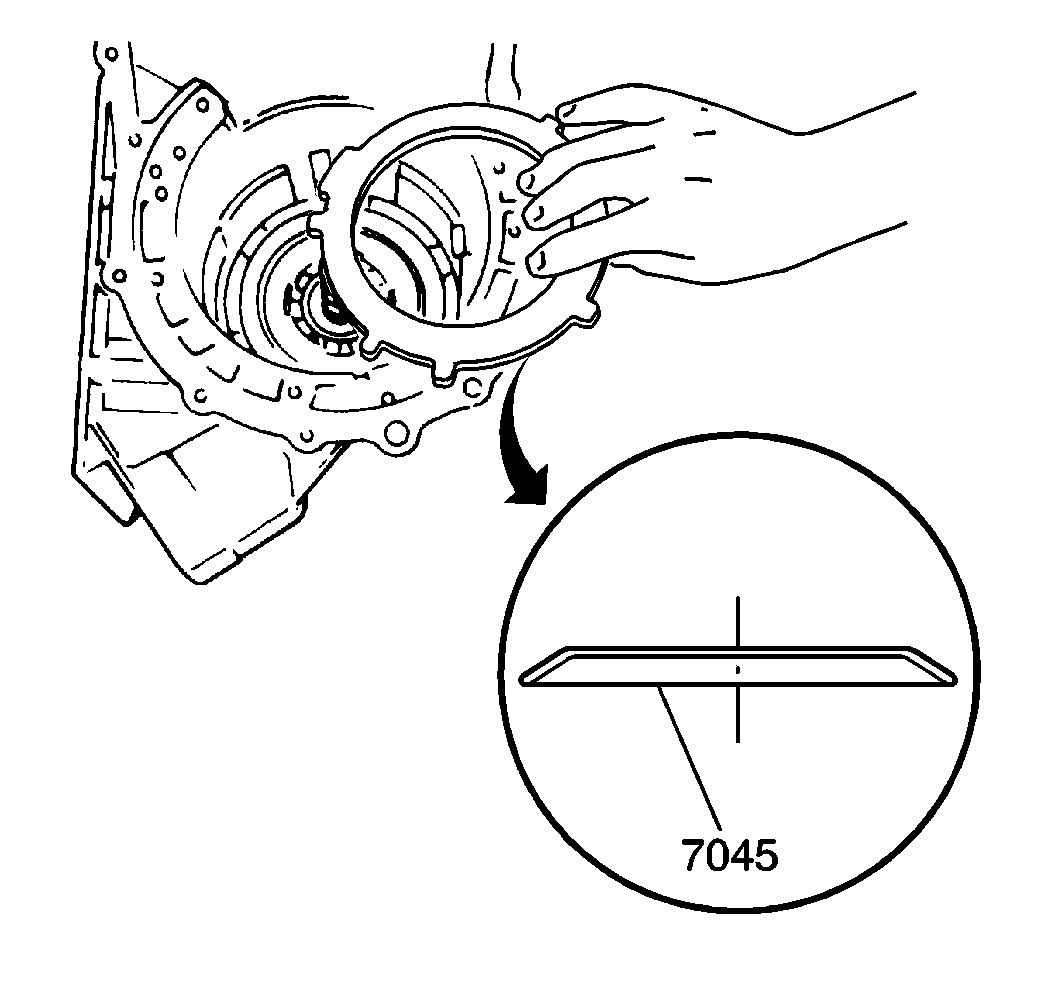
Notice: Whenever you install new clutch discs in the firsts-reverse brake, the
forward clutch or the direct clutch assemblies, you must first soak these
discs for two hours in Dexron®-III automatic transmission fluid GM P/N
12341643, or equivalent. This causes the clutch material on the discs to permeate
with the fluid. This will aid in ease of assembly and prevent
clutch overheating on first time engagement.
- Install the first-reverse brake damper plate (7045) into the case. Place
the convex side of the damper plate facing upward or away from the return
spring assembly.
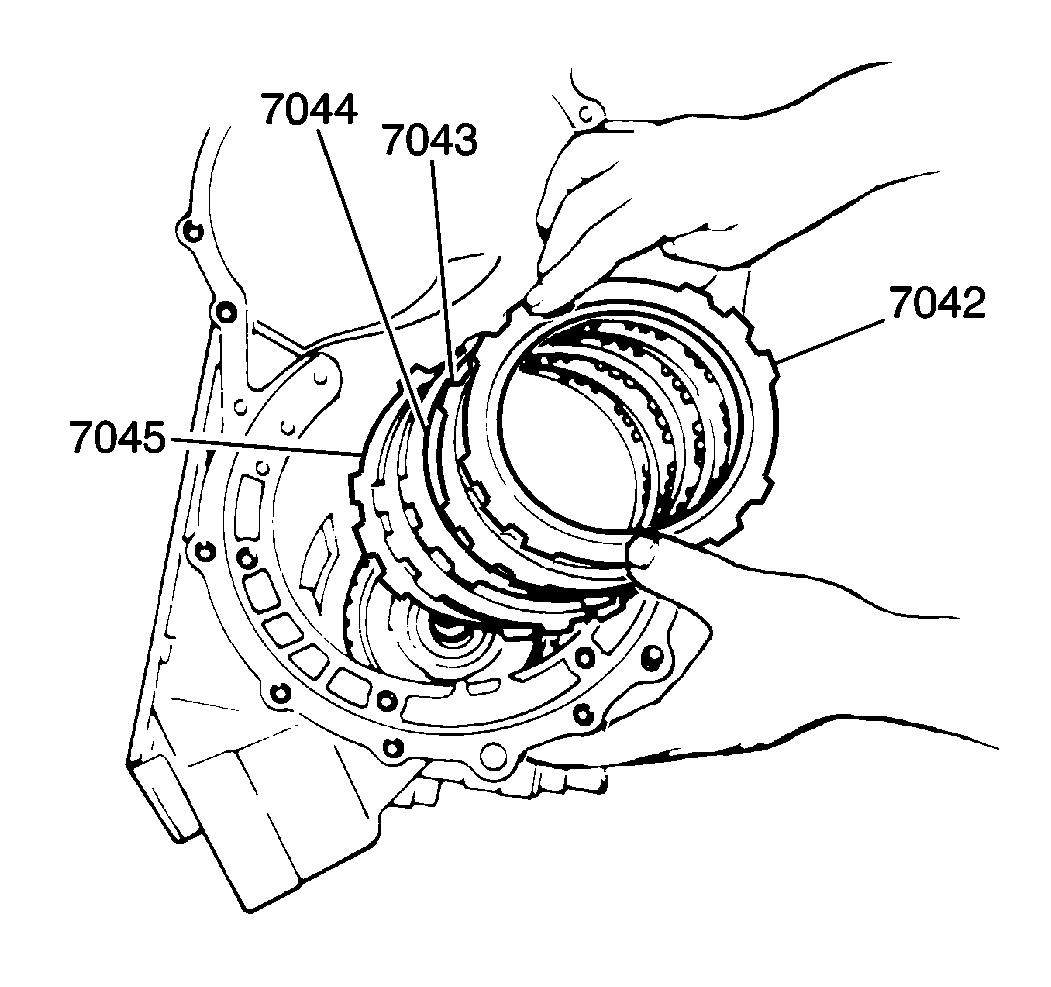
- Install four first-reverse brake plates (7043)
and four brake discs (7044)
into the case in an alternating sequence, beginning with a first reverse brake
plate (7043).
- Install the first-reverse brake flange (7042). Place the flat
side of the flange facing downward, against the last clutch disc.
- Install the number 2 one-way clutch race snap ring.
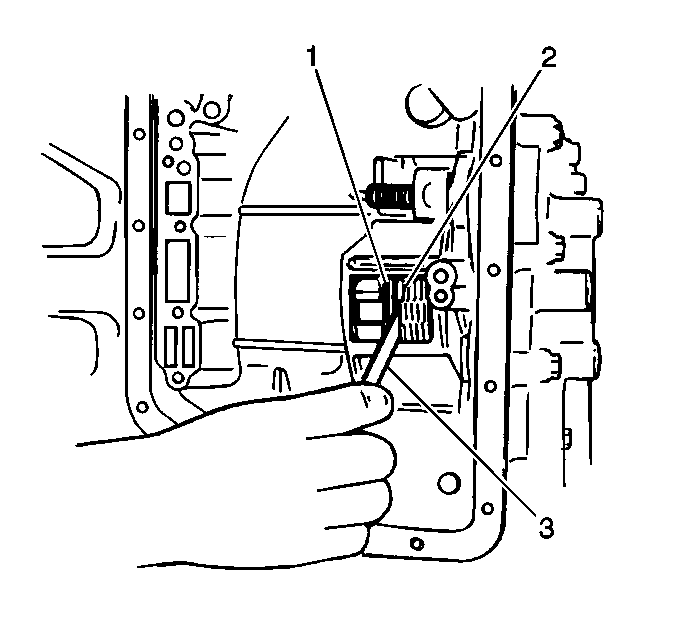
- Using a feeler gage, identified in the illustration
by the number 1, measure
the first-reverse brake clearance between the number 2 inner one-way clutch
race snap ring and the first-reverse brake flange. If clearance
is greater than 0.58-1.92 mm (0.023-0.075 in), replace
the first-reverse discs and plates.
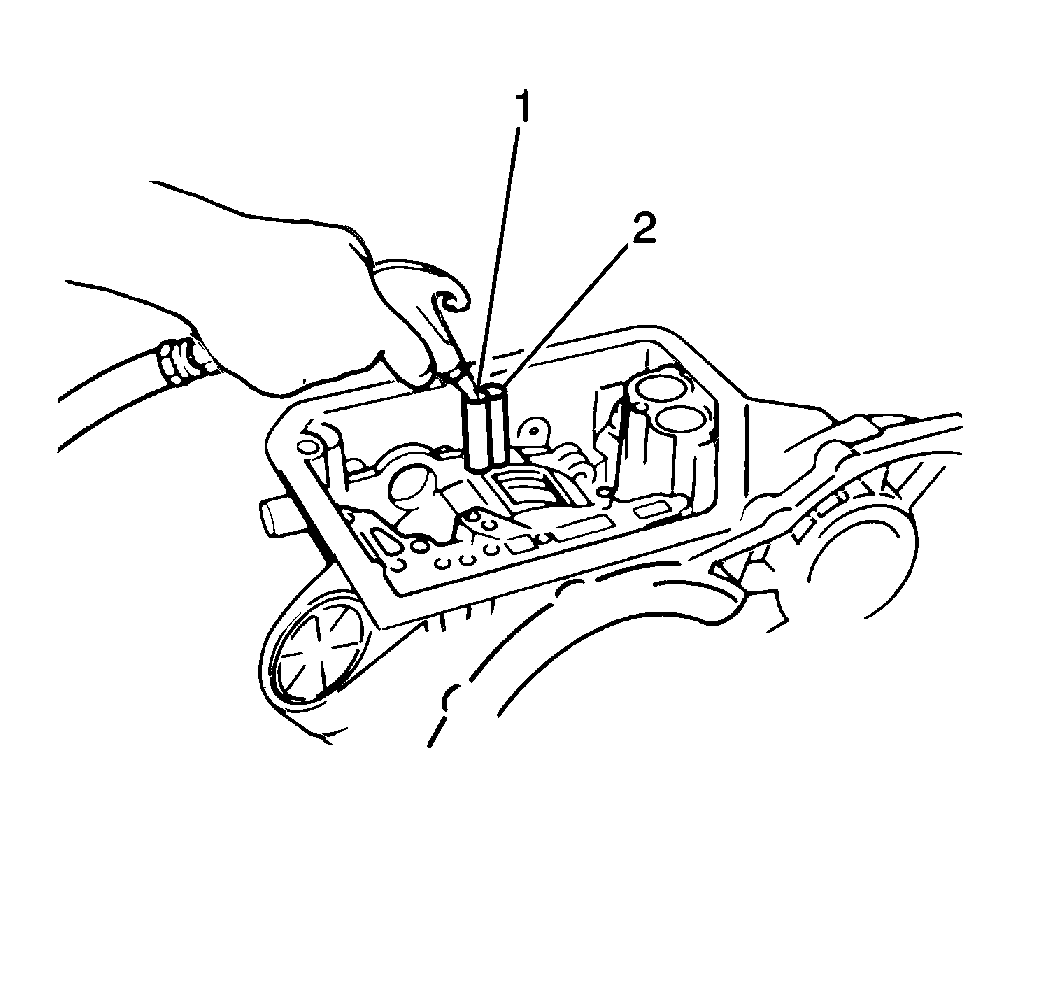
- Inspect the first-reverse brake piston for operation
by slowly applying low
pressure compressed air into the fluid passage marked in the illustration
by the number 1. When you release the air pressure, the return spring assembly
should force the piston back into its original position.







